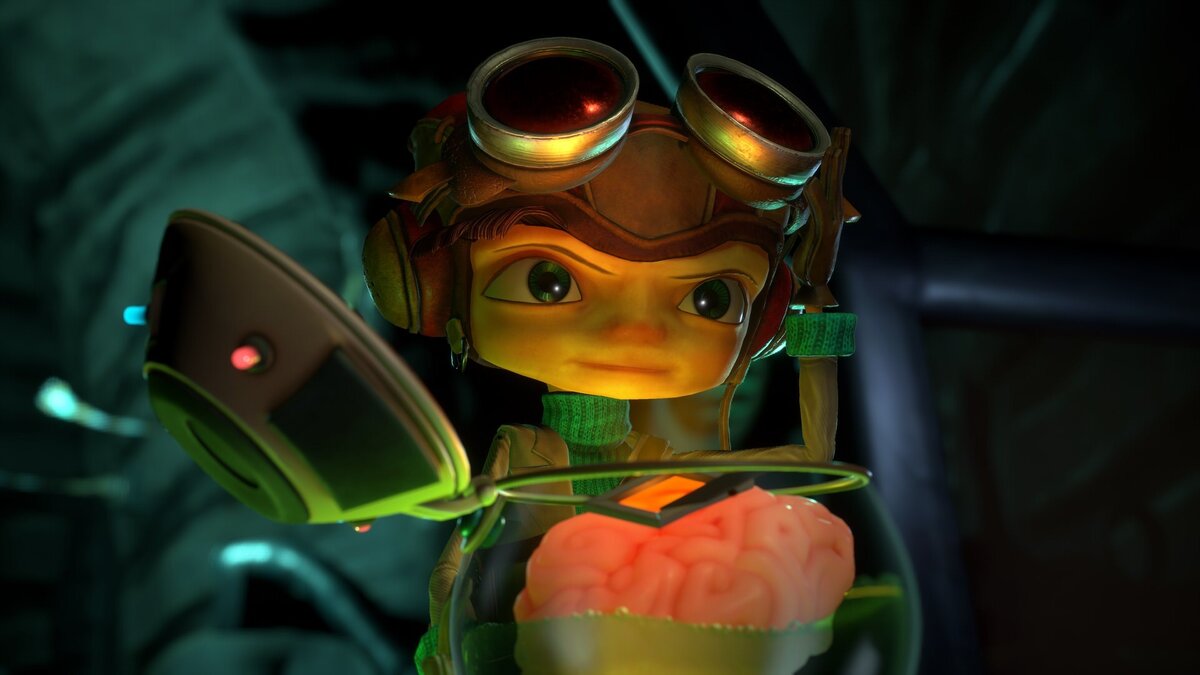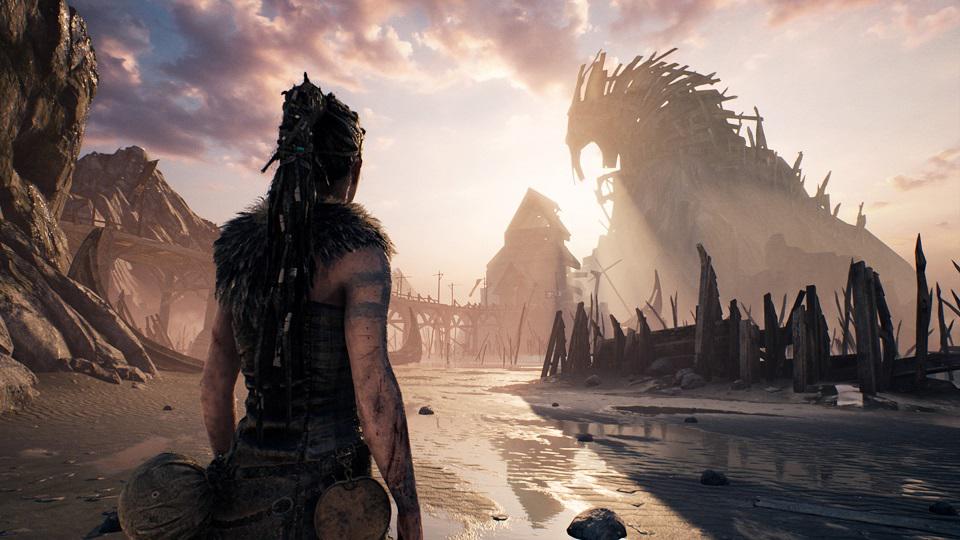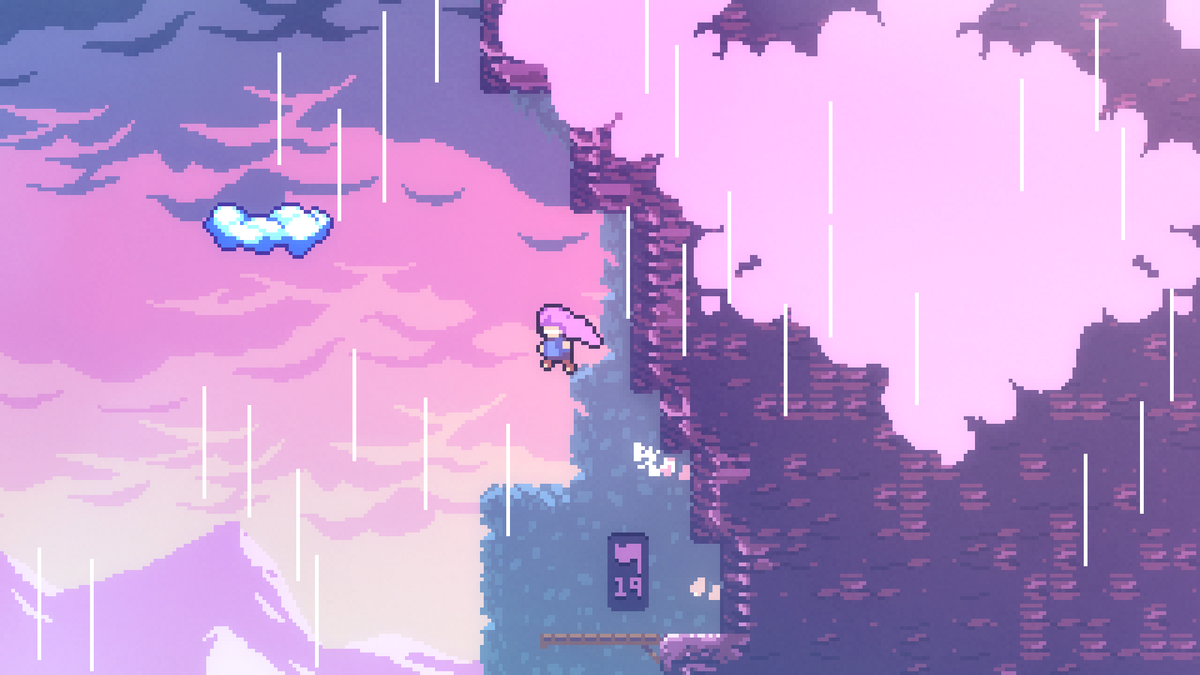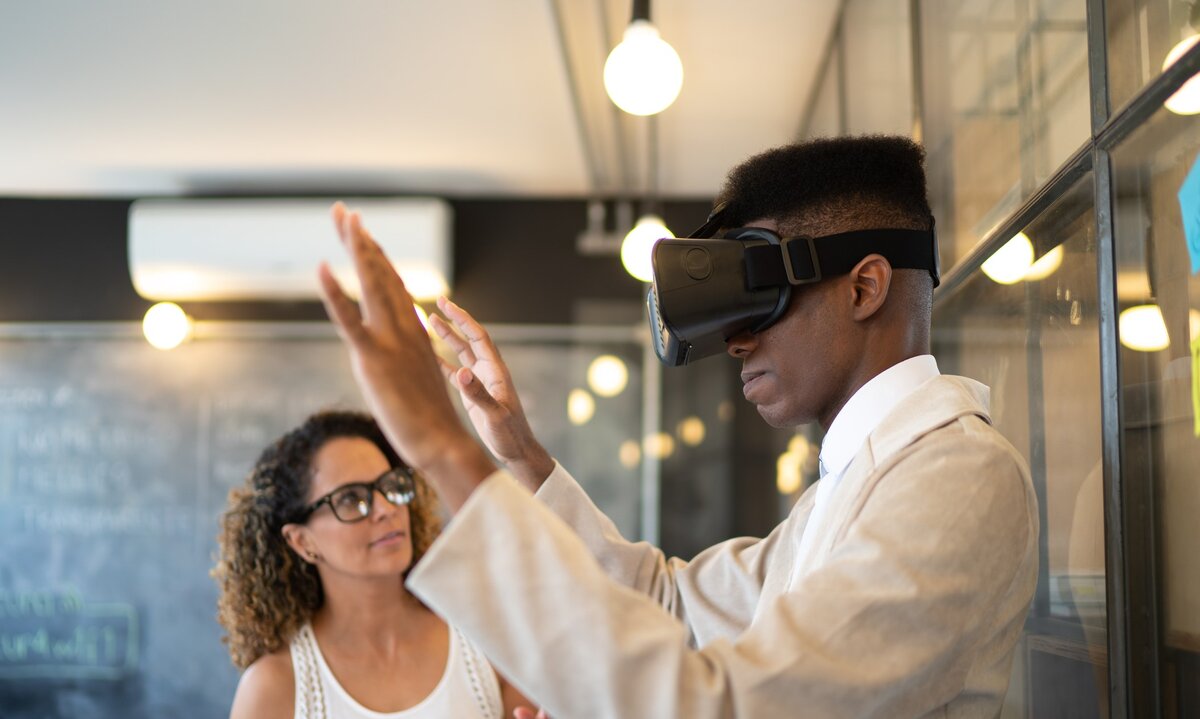Throughout the 90s, there was a long slew of headlines as the video game industry was figuring out how to regulate itself. It was a back-and-forth volley every week about whether video games were bad for people or good for people. Since then, things have calmed down significantly, but people are still often of two minds when it comes to what they think about video games and mental health.
However, the games industry and mental health professionals haven’t stopped thinking about it since then, and there has been a huge amount of work that has poured out of the woodwork on this topic to fill that void. Lots of video game publishers like to play with the ideas of mental health, but not all of them are particularly successful. One game in particular that stood out in 2005 as doing a good job of this was Double Fine’s game Psychonauts. With the upcoming Psychonauts 2 they’re looking to enhance and improve what they started 16 years ago.
How Double Fine Handles Mental Health In Psychonauts 2

In Psychonauts and Psychonauts 2, the main character Raz dives deep into people’s minds and finds in their dreamscapes cartoonish physical manifestations of their mental health problems. Panic attacks, rather than a feeling, are represented as technicolor enemies that leap upon Raz, and people’s specific traumas are played out in real but funny ways.
One example is the representation of Truman Zanotto’s anxiety about performing as a cook. The game’s scenario throws Raz onto a cooking show floor. The player must run back and forth, gathering ingredients as the judges make sniping comments from the stage.
It’s horrible, but it’s horrible in a way that highlights how anxiety exaggerates our fears. It calls attention to the fact that the dream is nearly always worse than the reality when it comes to mental health, and it invites us to find humor in that. This is a great example of how mental health awareness can be funny, while still being taken seriously and treated well.
And it’s not just a laughing matter for Double Fine, who has brought on Dr. Raffael Boccamazzo, Doctor of Psychology and game designer, to make sure that they stayed on the helpful side of things. Double Fine worked hard to make sure that their portrayals of mental health weren’t hurtful, that things were treated well, and that at the end of the day, people went away with a better appreciation of mental health and illness even if they were running around on a zany game show for most of their playtime that day.
Can Video Games Be Good for Mental Health?
Several studies have shown that people who play video games regularly rate their overall well-being as higher than those who do not. While an infinite amount of time spent playing video games can get in the way of things that you need to do to stay happy and healthy, a moderate amount of video games has been shown to improve mental health in much the same ways that engaging in other leisure activities do. One of the key advantages of any leisure activity is the time spent away from stress, and with the deep level of immersion that video games offer, they can certainly give us that much-needed respite from the day-to-day stresses of our lives.

However, some video games can actually do much more than that. The 2012 video game Journey was noted as particularly impactful on its audience. In the game, you play as a little character who walks through a desert. The character has no voice and says no words, and over time, the character you are playing as is joined by another character who is later revealed to be another player with whom you cannot communicate.
Over calming music and the peaceful desert scenery, the two people work together to solve small puzzles while experiencing what many players describe as “awe.” Through this unique type of gameplay, Journey helped many people feel deeply connected to each other and overcome feelings and mental health issues that they had been dealing with outside of the game.

Another game, Hellblade: Senua’s Sacrifice, offers a different kind of benefit: raising awareness and empathy for the problems that others face. The game was crafted with the help of people suffering from psychosis, as well as professional psychologists to demonstrate what it is like to live with certain diseases, to struggle with them, and to live with purpose while also living with mental illness issues.

And then there are the skill-builders like Celeste. Celeste is a game about anxiety, both for the character and for the player. As it tells the story of the character Celeste returning to a place of trauma and anxiety and learning to deal with it by practicing calm and deliberate thought. It forces the player to do the same through its devilishly hard jumping puzzles. These puzzles are built in a way that rewards staying calm in tense situations, thinking through things that initially seem impossible, and (most importantly) picking ourselves back up when we don’t get it the first time.
Building resilience, giving us places to explore new emotions and concepts, and showing us that our emotional realities are not separated from us are topics that often come up in therapy and these are just a few examples of how gaming can play a positive role in mental health. Video games are another door to a lot of the outcomes and skills that we seek to build through therapy.
Can Video Games Be Used for Therapy?
Therapists have actually been using games, toys, and other activities as a way to connect with their patients for a very long time. You might have heard of Play Therapy? Participating in games together can often be a trust-building and relationship-building activity for people, and this extends to therapy. Video games are no exception to this rule, as the endless number of deep relationships with people in everything from World of Warcraft guilds to what professional video game teams demonstrate.
And in fact, if we look at how games have been used in therapy, this foundation of building relationships through shared experiences and understanding can be found in the literature back as far as 1986. Some professional therapy groups use board games, tabletop roleplaying games, and video game versions of both to teach a wide variety of social skills, help deal with anxiety, depression, loss, and even addiction.
They do this by leveraging the creative freedom that games give people to explore and exist in situations where they can safely work with these problems without putting their whole selves on the line, and while existing in a world without some of the structural or habitual barriers to action that might slow people down when initially approaching such a topic.
By engaging with things in a space that you have some control over and that you can exit when you need to, game therapy can allow us to unlock ideas that we can use in our daily life but would have initially appeared impossible from where we started off. It’s another way to help ourselves recognize the repeating actions that make up a diseased approach to something, and to help build reactions that allow us to move around them. And further, it allows us to do this while still having fun and deepening our relationships with people that we’re working with.
What Can We Expect Next from Gaming and Mental Health?

As more and more therapists work to integrate their approaches with video games, video game developers work with professionals to get better at making games that effectively deal with mental health, and patients continue to play more games, it is no doubt that we will start to see some more interesting tools available for the use of video games in therapy. One place that we’re starting to see a lot of interesting innovation is in virtual reality games.
Virtual Reality Exposure Therapy (VRET) is a novel approach that is being tested in some places using the immersive tools of virtual reality to allow people to explore their anxiety or traumatic stimulus in a controlled way where there is no possibility that it can physically hurt them but gets as close to a real-world exposure to the thing they are afraid of as possible.
This allows therapists to add elements of control to the experience and allows them to instantly pull people out of exposures that start to get too intense for therapeutic purposes. By using games in this way, we can get around the very significant barriers to exposure therapy that attempting to do it in the real world can provoke. These and other approaches will no doubt see more use as VR equipment becomes less expensive and more immersive.
The future of this field is bright, whether it’s sitting on a couch talking about your favorite video game as a way to get in touch with each other or something more tailored and more particular to the problem at hand.
I’m excited to see the positive impact the gaming world can have on mental health!




